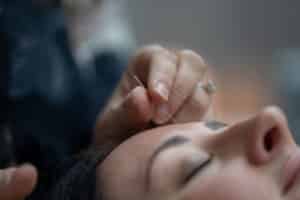Vertigo is a rather uncomfortable set of symptoms rather than a “condition” . Really it’s the sensation that you are, or the environment around you is moving ! It’s most often caused by a problem with the balance organs of the inner ear. Although it can also be because of a problem within the brain or the nerves. If you have vertigo, you may feel as if you’re moving even when you’re standing completely still.

Table of Contents
Symptoms of vertigo may include:
- feeling sick and nauseous
- vomiting because of the perceived movement
- difficulty standing or moving
The symptoms of vertigo can be hardly noticeable or so severe that the loss of balance prevents you from perfoming everyday tasks. Vertigo can be very upsetting and create a great deal of anxiety
Depending on the cause, an episode of vertigo may last several seconds, minutes, hours or days.
Vertigo is not a fear of heights.
What causes vertigo?
Vertigo is commonly caused by a problem with the balance mechanisms in the inner ear. However, it can also be caused by problems in certain parts of the brain. Generally is can be greatly improved by a combination of Acupuncture and or Physiotherapy at the Hatfield Practice
Possible causes of vertigo include:
- benign paroxysmal positional vertigo (BPPV) – where certain head movements trigger vertigo
- Ménière’s disease – a condition that also causes tinnitus (ringing in your ears) and hearing loss
- Migraines – severe headaches
- Vestibular neuronitis – inflammation of the vestibular nerve which runs into the inner ear and sends messages to the brain that help control balance. Condition is usually caused by a viral infection, comes on suddenly and can cause other symptoms such as guiddiness, nausea (sick feeling) and vomiting (being sick). You won’t usually have any hearing problems.
- Labyrinthitis is an inner ear infection. Causes a delicate structures deep inside your ear (the labyrinth) to become very inflamed. The labyrinth is a maze of fluid-filled channels that control hearing and balance.
Central vertigo
Central vertigo is caused by problems in part of your brain, such as the cerebellum (located at the bottom of the brain) or the brainstem (the lower part of the brain that’s connected to the spinal cord). Causes of central vertigo include migraines and, less commonly,tumours or multiple sclerosis.
Outlook
Mild vertigo is quite common and not generally serious. However, vertigo that re-occurs or persists may be caused by underlying health conditions that we also check for.
Without establishing what’s causing your vertigo and receiving appropriate treatment, you may keep having episodes of vertigo for many months or even years.
If you have recurrent or persistent vertigo your specialist at The Hatfield Practice will rule out a more serious cause and recommend appropriate treatment, which may include:
- Refer to your Gp for medication or further tests
- Physiotherapy vestibular rehabilitation – a special exercise programme that encourages your brain to adapt to the abnormal messages sent from your ears. In other words effective training to help you cope with the feelings. Includes specialist exercises and treatments
- Traditional Acupuncture at the Hatfield Practice can be brilliant for all motion and dizziness type conditions.
Call The Hatfield Practice Physiotherapist, Acupuncturist or reception for advice on Hatfield 888229






